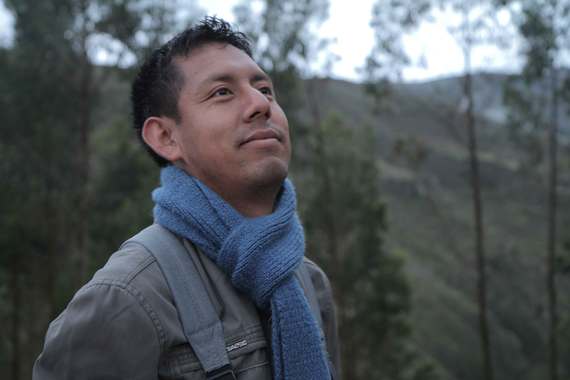This October at the IMF-World Bank Annual Meeting in Lima, Peru, the development community came together and discussed the newly adopted Sustainable Development Goals. During the meeting, Managing Director of the IMF, Christine Lagarde, stressed the importance of promoting equality and inclusive development, while World Bank President Jim Kim highlighted the role education plays in meeting so many of our development goals. We have established an ambitious goal on an ambitious timeline: fifteen years to ensure quality education for all. As the global education community explores how we will do this, much of the conversation is centered on expanding funding, addressing teacher shortages, improving teacher development, and leveraging technology. But while these conversations are important, we should also be asking ourselves: Are we doing all we can to mobilize and maximize our human resources towards achieving success?
Virtually everyone working in education can name interventions, classrooms, and even whole schools that are successfully ensuring our most vulnerable children receive quality educations. What we also know to be true is that at the center of all of those success stories are leaders who deeply believe in the potential of children and are on a mission to provide them with the support and opportunity they deserve - principals rallying their staff, parents, and students around a shared vision of success; teachers empowering students and transforming their perceptions of what is possible; and entrepreneurs and policy makers building coalitions of support for an intervention that they know will make fundamental gains in addressing a clear problem. Leaders are critical to the management of whole systems, and, more importantly, the success of each and every school. And yet, endeavors to develop more education leaders remain among the most powerful and least talked about drivers of progress.
During the last IMF-World Bank meeting, in an effort to give this topic a more prominent place in the global education agenda, Teach For All hosted a panel on the importance of leadership development for strengthening our education systems. The discussion engaged perspectives from an education NGO, a development organization, and policy makers. We agreed that developing and unleashing education leaders is an essential factor for improving education, but that there are too few organizations and governments working to ensure this happens.
One panelist, Franco Mosso, spoke about how the organization he leads, EnseñaPeru, is successfully creating the kind of leaders our systems need. EnseñaPeru is calling on promising university graduates, from diverse academic backgrounds, to put their talent and energy towards improving education. During two-year teaching commitments in high-need schools and communities, the recent graduates do everything they can to help their students achieve. In the process, they see their students' full potential as well as the challenges they face, and that experience places them on a life-long path towards expanding educational opportunity. Ninety percent of EnseñaPeru's 162 alumni are still working in education today. Thirty-two hold positions at the Ministry of Education, helping to change policy and execute new initiatives as part of the country's ambitious education agenda.
The panelists asserted the need not only to channel more leadership potential towards education, but also to redesign our educational systems in order to develop and unleash the potential of those who are already committed to the field. In Peru, a growing country with huge educational challenges, the Ministry of Education is undertaking an ambitious reform effort with pillars centered on teachers' career reform, management improvement at the school and system level, new pedagogic programs, and massive infrastructure investment. Central to the reform is the empowerment of principals. Improving the quality of the educational service will only happen if principals have the motivation, managerial skills, and adequate resources and tools necessary to manage their schools successfully. Furthermore, they need the ability to control personnel, funding, and organizational decisions. Until now, principals' hands in Peru have been tied, but that has started to change. Fifteen thousand principals, selected on the basis of merit, are currently receiving management training and will be able to increasingly take more decisions. They will start participating in the selection of teachers and have more control over the resources allocated for maintenance and supplies.
Greater investment in leadership development is also needed among local, regional, and national authorities. Across Peru, there is a shared commitment to invest the required resources, but charting a clear path of reform that will be maintained across administrations requires leadership as well as continuity. Most reforms in education take a long time; they have to be implemented as national public policies, not as the policies of one administration or another. Creating this continuity requires mature leadership that puts education beyond political interests and follows with perseverance a determined path for many years.
The current conversations around how we will provide quality education to all children by 2030 are going to shape education policies for the next fifteen years. And while the strategies under discussion are undeniably important, we must complement them with efforts to cultivate the leadership capacity to see them through. If we are going to be successful in realizing quality learning for all, we need countries to mobilize and maximize their most precious resources - their human resources - toward this important end. This is key to achieve quality education for all. Actually, it may be the only way to achieve it.
Jaime Saavedra serves as Peru's Minister of Education. Wendy Kopp is Co-founder and CEO of Teach For All.
